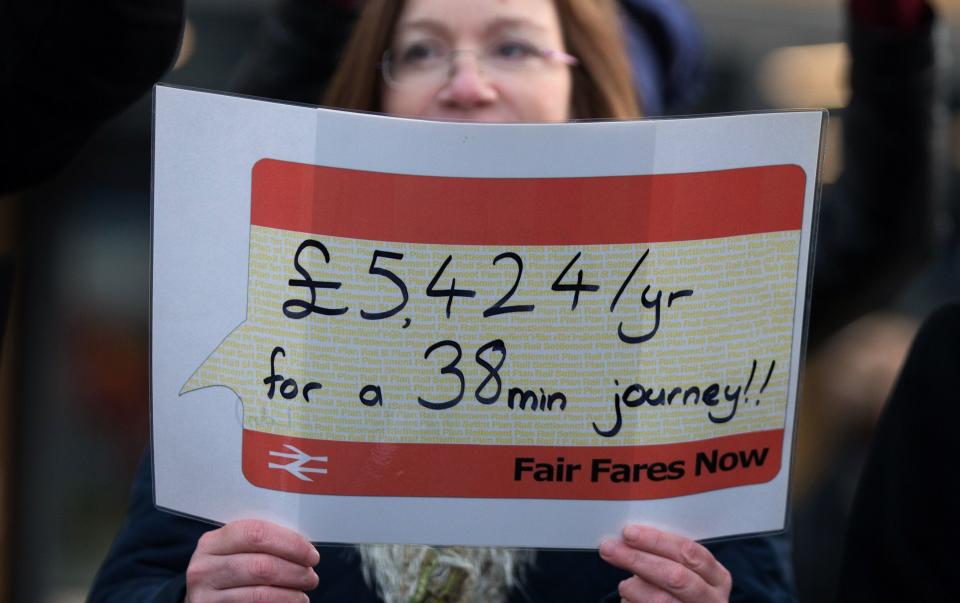Rail fares are going up, but profits remain paper-thin

The UK’s railway association is defending itself after announcing plans to hike rail fares by an average of 3.1% next year, noting that companies only keep 2% of profit from the average ticket.
Rail Delivery Group, which represents dozens of operators including the London Underground and Southeastern Railways, said “98p from every £1 spent on fares goes into running the railway.”
One-quarter of fares goes towards staff salaries, while the remaining amount covers areas including infrastructure, administrative costs and train maintenance, the group said.
Money people pay in fares underpins investment in the better railway everyone wants. 98p of every pound from fares goes back into running and maintaining the railway. #investinginrail https://t.co/QTFbZsM0bF pic.twitter.com/KrGetB9wNX
— Rail Delivery Group (@RailDeliveryGrp) November 30, 2018
But campaigners are deeply upset by the annual price rise after a year of high-profile timetable and scheduling problems that led to major delays for commuters. The planned 3.1% rise comes after a 3.4% boost in 2018.
Darren Shirley, the head of the Campaign for Better Transport group, said in a tweet that it was a “dismal day for rail commuters.”
“It’s quite galling that after the appalling year passengers have had fares are still going up,” he wrote.
His agency is calling on the government to freeze fares in 2019.
Not a great day for rail commuters as next years rail fares rise are announced. After a horrible year of botched timetable changes and delays the Government needs to introduce a fares freeze from January and make rail travel more affordable. @RailDeliveryGrp @transportgovuk pic.twitter.com/917wuXEvKQ
— Campaign for Better Transport (@CBTransport) November 30, 2018
Rail Delivery Group has promised that a massive investment in the system will lead to more “comfortable, reliable and frequent trains.”
“Nobody wants to pay more to travel, especially those who experienced significant disruption earlier this year,” said Paul Plummer, CEO of Rail Delivery Group. “Money from fares is underpinning the improvements to the railway that passengers want and which ultimately help boost the wider economy.”
The rise in fares is based upon the retail price index (RPI) from July, which was 3.2%. The Rail Delivery Group said it often keeps annual price increases below the RPI figure.
However, this figure exceeded the most common measure of inflation in the UK – the consumer price index (CPI) – which has been close to 2.5% for most of 2018.

 Yahoo Finance
Yahoo Finance 